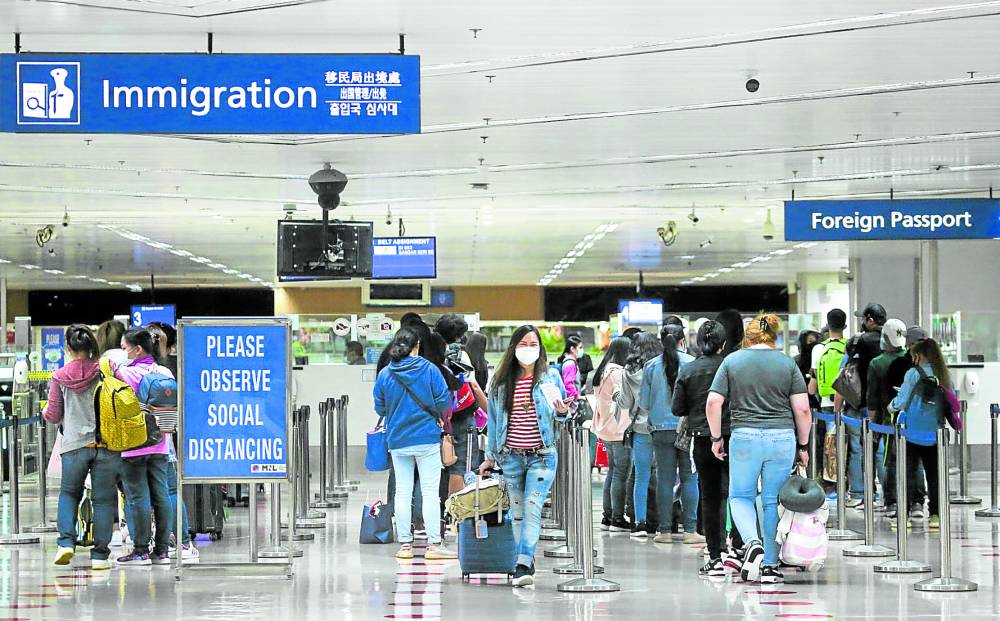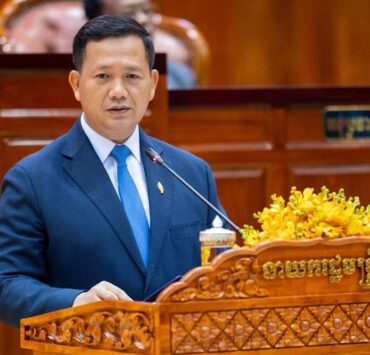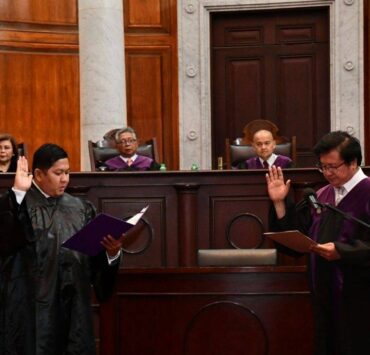Trafficked victims detail scam hub horror stories

When Justin decided to ask the Philippine Embassy in Cambodia for help on May 4, he thought it was the first step toward freedom. Instead, he was locked in a room by his boss, forced to strip and told he would die if he didn’t reveal who had tipped off authorities.
“They pulled out these large electric devices and said if I didn’t talk, they’d use them,” Justin recalled. “I thought I was going to die.”
Justin is one of dozens of overseas Filipino workers (OFWs) trafficked into scam operations in Cambodia. Lured with false promises of legitimate jobs, they found themselves trapped in guarded compounds and forced to scam foreigners. Failing to meet quotas meant beatings, salary deductions or public humiliation.
Eight victims shared their experiences during a press conference organized by Migrante International on July 19. They wore face masks and sunglasses to hide their identities, fearing retaliation from former employers.
Some victims were forced into “love scamming”—creating fake Facebook accounts to lure, manipulate and defraud fellow Filipinos, both at home and abroad. Others were made to promote bogus investment schemes. They worked grueling shifts, from 10 p.m. to 4 p.m. the next day.
Victims said failure to bring in targets led to punishment.
“If you get sick, you won’t get the 300-dollar attendance that they promised,” said Dennis. “[You get] deductions if you do something wrong. I only got one salary for 88 US dollars,” he said.
Workers’ phones were confiscated for most of the day, with only one hour of access. Some were sold to other companies if they failed to bring in enough profit. Bren, another victim, said he was punished in front of fellow Filipinos before being transferred elsewhere.
“I caught the ire of the employer because I couldn’t do my job. [It’s because] I didn’t think I’d be scamming people. They hurt, they punish,” Bren said.
Dennis also recalled how two Indian coworkers who tried to leave were taken to a “black room” and electrocuted.
“There was a Filipino who saw them almost dead. What the [employers] do is they bring them to a hole [to be buried]. But they jumped from the car and were caught by police,” he said.
Victims who sought help from the Philippine Embassy were often discovered by their traffickers and handed over to Cambodian authorities for detention.
Four batches
Dennis said he was picked up by immigration police, believing he would be brought to the embassy. Instead, he was arrested and taken to a detention center.
He acknowledged that the Philippine Embassy provided some food and personal items, but coordination with Cambodian authorities remained weak. According to Migrante, rescued workers typically wait between one to three months before being repatriated.
Migrante said there were four batches of Filipinos were sent home from Cambodia. Justin was part of the latest group, flying to Vietnam first before arriving in Manila on July 14.
But when they landed at Ninoy Aquino International Airport, no one from the Department of Foreign Affairs or the Inter-Agency Council Against Trafficking was there to receive them.
“We were told someone would meet us. But no one came,” Dennis said. As of writing, the mentioned government agencies have not responded to requests for comment.

















